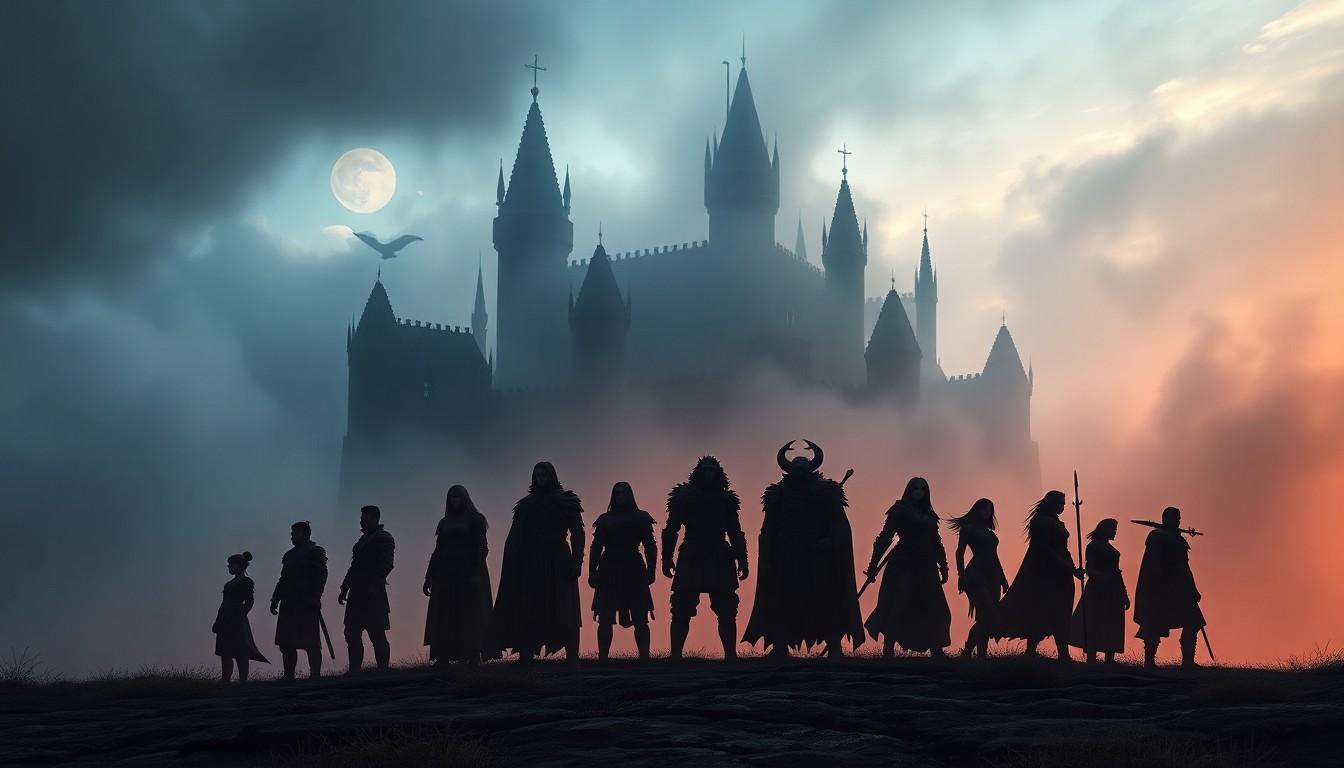In the vast, treacherous world of Elden Ring, character names aren’t just labels; they’re the first step into a realm of epic quests and legendary battles. Whether you’re crafting a hero destined to save the realm or a villain with a flair for dramatic monologues, the name you choose sets the tone for your entire adventure. After all, who wouldn’t want to storm the battlefield as “Sir Fluffykins the Fearless” or “Dame Fartblossom the Unstoppable”?
With a rich tapestry of lore and creativity, Elden Ring offers a playground for imagination. From the whimsical to the downright absurd, the right name can turn a simple character into a memorable legend. So buckle up, grab your quill, and get ready to dive into the art of naming your Elden Ring character like a pro—because in this world, a name can be as powerful as the mightiest sword.
Table of Contents
ToggleOverview of Elden Ring Character Names
Character names in Elden Ring play a vital role in shaping the player experience. They contribute to the atmosphere of the game, offering insights into a character’s backstory or personality. Creativity thrives within this naming process, with players able to craft names that resonate with their unique gaming style.
Players often choose names that reflect pivotal traits or characteristics. An evocative name enhances immersion, invoking a sense of connection between the player and their character. Names can signal roles, such as warrior or sorcerer, allowing them to hint at gameplay dynamics.
The game features a variety of naming conventions inspired by mythology and history. Many players draw from these sources, creating memorable and distinct names that add depth to their characters. Customization remains a key aspect, enabling players to select names that align with their vision, whether heroic or sinister.
Using the name generation tools available within the game can also spark inspiration. These tools assist in producing unique names that blend seamlessly with the vast universe of Elden Ring. With an impressive array of options, players can experiment with various combinations, refining them to achieve the perfect fit.
Overall, Elden Ring’s character names extend far beyond mere identification. They serve as a fundamental element of gameplay that enriches the narrative and enhances the player’s journey. Crafting a standout name can empower players, making it an experience as rewarding as mastering combat mechanics.
Notable Character Names
Character names in Elden Ring play a crucial role in shaping narrative and player experience. Each name is thoughtfully crafted, carrying meanings that resonate throughout the game.
Protagonists
Protagonists like the Tarnished embody the struggle for power and redemption. Names such as Selin and Renna reflect deep lore and complex histories. These names often hint at unique abilities or backgrounds, enhancing players’ understanding of their roles. Players may select names like “Gideon Ofnir,” which evoke a sense of mystery and ambition. Such choices can create a more immersive gameplay experience, allowing players to form a connection with their characters.
Antagonists
Antagonists elevate the game’s intensity with their varied and striking names. For example, “Radahn” conjures images of a powerful warrior, while “Malenia” suggests a fearsome adversary. These names enhance the narrative, instilling a sense of challenge. Characters like “Mohg,” known as the Blood Lord, evoke a dark and enigmatic presence. Selecting names for antagonists that reflect their traits helps set the stage for epic confrontations, enriching the player’s journey through the game world.
Unique Naming Conventions
Naming conventions in Elden Ring reflect a rich tapestry of cultural and mythological inspirations. Characters often embody traits drawn from various cultures, enhancing the game’s immersive quality. These names create a deeper connection between the player and the diverse world of the Lands Between.
Cultural Influences
Cultural elements play a crucial role in shaping character names. Many names resonate with historical figures or folklore, grounding the game’s fantasy in familiar contexts. For instance, players may encounter characters with names inspired by medieval or Renaissance traditions. Such influences provide players with a sense of familiarity and recognition, enriching their gameplay experience. Character names like Blaidd resonate with dark folklore, while others echo renowned historical warriors, inviting exploration of the game’s themes.
Mythological References
Mythology significantly impacts the naming of characters within Elden Ring. Character names often reference legendary figures or stories, adding layers of meaning to their roles. For example, names like Maliketh invoke associations with ancient tales of gods and heroes. This connection to mythological narratives enhances the player’s understanding of character motivations and the overarching plot. By incorporating these references, Elden Ring encourages players to delve deeper into the lore, discovering how naming choices align with the game’s broader themes of fate and destiny.
Character Name Significance
Character names in Elden Ring play a crucial role in shaping player experiences. They do more than identify characters; they add richness to the narrative and create emotional connections.
Lore and Background
Names often reflect deep lore and character backgrounds. Characters like Blaidd draw inspiration from dark folklore, enhancing the game’s atmosphere. Each name contributes to world-building, hinting at histories intertwined with the game’s themes. Naming conventions invoke mythological and historical figures, immersing players in a familiar yet fantastical context. For example, Maliketh invokes ancient tales, adding layers of meaning to character motivations. Players can explore these connections and uncover how names relate to broader narratives, enhancing their engagement.
Impact on Gameplay
Naming choices influence gameplay significantly. Protagonists embody themes of power and redemption, while antagonists like Radahn create a sense of challenge. Players often find themselves more invested when character names resonate with their traits. A well-chosen name reinforces the character’s role and motivates player decisions. The immersion deepens as players navigate the intricate world of Elden Ring, where each encounter is enriched by these names. Ultimately, character names shape not only identities but also play a vital role in the overall gaming experience.
Conclusion
Character names in Elden Ring are essential to the overall gaming experience. They not only shape identities but also enhance immersion and emotional connections. The creativity involved in selecting a name can elevate a player’s adventure and deepen their engagement with the game’s rich narrative.
As players explore the vast landscapes and face formidable foes, the names they choose resonate with the lore and themes of the game. This connection enriches the journey and makes each encounter feel personal. Ultimately, the art of naming in Elden Ring is a powerful tool that complements the gameplay, inviting players to craft their unique stories within this captivating world.



